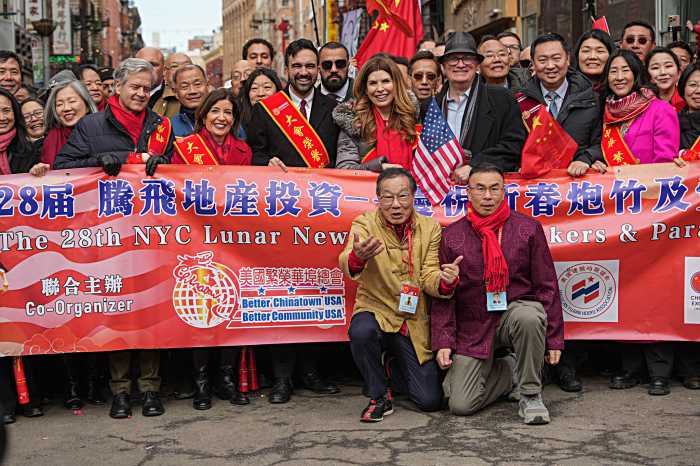Claims Apple, Publishers Colluding
(AP) The government says avid best-seller readers who use electronic books have been getting ripped off. Tina Fey’s “Bossy Pants,” Tim Tebow’s “Through My Eyes” and Keith Richards’ “Life”-maybe they should have cost less.
The Justice Department and 15 states sued Apple Inc. and major book publishers last Wednesday, alleging a conspiracy that raised the price of electronic books. They said the scheme cost consumers more than $100 million in the past two years by adding $2 or $3, sometimes as much as $5, to the price of each ebook.
If there was price fixing, even the e-book version of the hot-selling Walter Isaacson biography of Steve Jobs, the late genius behind Apple computers, may have cost too much.
Attorney General Eric Holder said executives at the highest levels of the companies conspired to eliminate competition among e-book sellers. Justice’s antitrust chief, Sharis Pozen, said the executives were desperate to get Amazon.com-the marketer of Kindle e-book readers-to raise the $9.99 price point it had set for the most popular e-book titles, because that was substantially below their hardcover prices.
The federal government reached a settlement with three of the publishers, Hachette, HarperCollins and Simon & Shuster. But it will proceed with its lawsuit in federal court in New York City against Apple and Holtzbrinck Publishers, doing business as Macmillan, and The Penguin Publishing Co. Ltd., doing business as Penguin Group.
Connecticut and Texas, two of the 15 states filing a separate lawsuit, reached agreements with Hachette and HarperCollins to provide $52 million in restitution to consumers, using a formula based on the number of states participating and the number of e-books sold in each state. Other states in the case may sign onto the agreement, and other companies might be persuaded to join.
Susan E. Kinsman of the Connecticut attorney general’s office said it’s too early to say how consumers can go about getting refunds. But there could be millions of people applying. A recent Pew Research Center survey found that 21 percent of adults said they had read an e-book in the last year.
Since Amazon introduced the Kindle in 2007, e-book sales have surged. They represented just 2 percent of all titles sold in the United States that year, but soared to 25 percent last year. In 2010, about 114 million e-books were sold at a total cost of $441.3 million.
Holder told a Justice Department news conference that “we believe that consumers paid millions of dollars more for some of the most popular titles” as a result of the alleged conspiracy. Pozen said the scheme added an average of $2 to $3 to the prices of individual e-books.
Connecticut Attorney General George Jepsen said the individual book markups went as high as $5 and the total cost to consumers was more than $100 million since April 2010, when the scheme allegedly took effect.
The government lawsuits did not disclose individual titles whose prices were allegedly jacked up. The Fey, Tebow, Richards and Isaacson books all came out in electronic versions from the named publishers after April 2010.
According to Pozen, Apple’s Steve Jobs told publishers involved in the alleged conspiracy that “the customer pays a little more, but that’s what you want anyway.”
The lawsuit said the effort to get e-book prices increased by Amazon.com came as Apple was preparing to launch the iPad. The government said the conspirators agreed that instead of selling books to retailers and letting them decide what retail price to charge, the publishers would convert the retailers into “agents” who could sell their books but not alter the publisher-set retail price. The scheme called for Apple to be guaranteed a 30 percent commission on each e-book it sold, the lawsuit said.
“To effectuate their conspiracy, the publisher defendants teamed up with defendant Apple, which shared the same goal of restraining retail price competition in the sale of ebooks,” the lawsuit said.
The European Union conducted an investigation that paralleled the U.S. probe. The Union’s Joaquín Almunia, vice president of the commission in charge of competition policy, said in Brussels that he welcomes the fact that the five companies are making proposals to reach an early resolution of the EU case. “We are currently engaged in fruitful discussions with them,” said Almunia.
Hachette denied it was involved in any conspiracy to illegally fix the price of e-books and said it changed its pricing structure-the central government allegation-to facilitate entry by a new retail competitor, Apple.
“Two years ago, Amazon effectively had a monopoly on the sale of e-books and e-readers, and was selling products below cost in an effort to exclude competitors,” said Hachette.
Amazon called the settlement “a big win for Kindle owners, and we look forward to being allowed to lower prices on more Kindle books.”
After reading the federal complaint, the Consumer Federation of America called it “a `slam-dunk’ case of collusive, anti-competitive behavior.”
At Apple, spokesman Tom Neumayr declined to comment on the lawsuit.
Macmillan CEO John Sargent said in a letter to authors, illustrators and agents that the company has not settled because it is “hard to settle a lawsuit when you know you have done no wrong.”
Sargent said there were months of discussions with the Justice Department over a possible settlement, but the government’s proposed terms “were too onerous” and “could have allowed Amazon to recover the monopoly position it had been building before our switch to the agency (pricing) model.”
“We also felt the settlement the DOJ wanted to impose would have a very negative and long-term impact on those who sell books for a living, from the largest chain stores to the smallest independents.” he said.
Associated Press writers Larry Neumeister and Hillel Italie in New York contributed to this report.

































